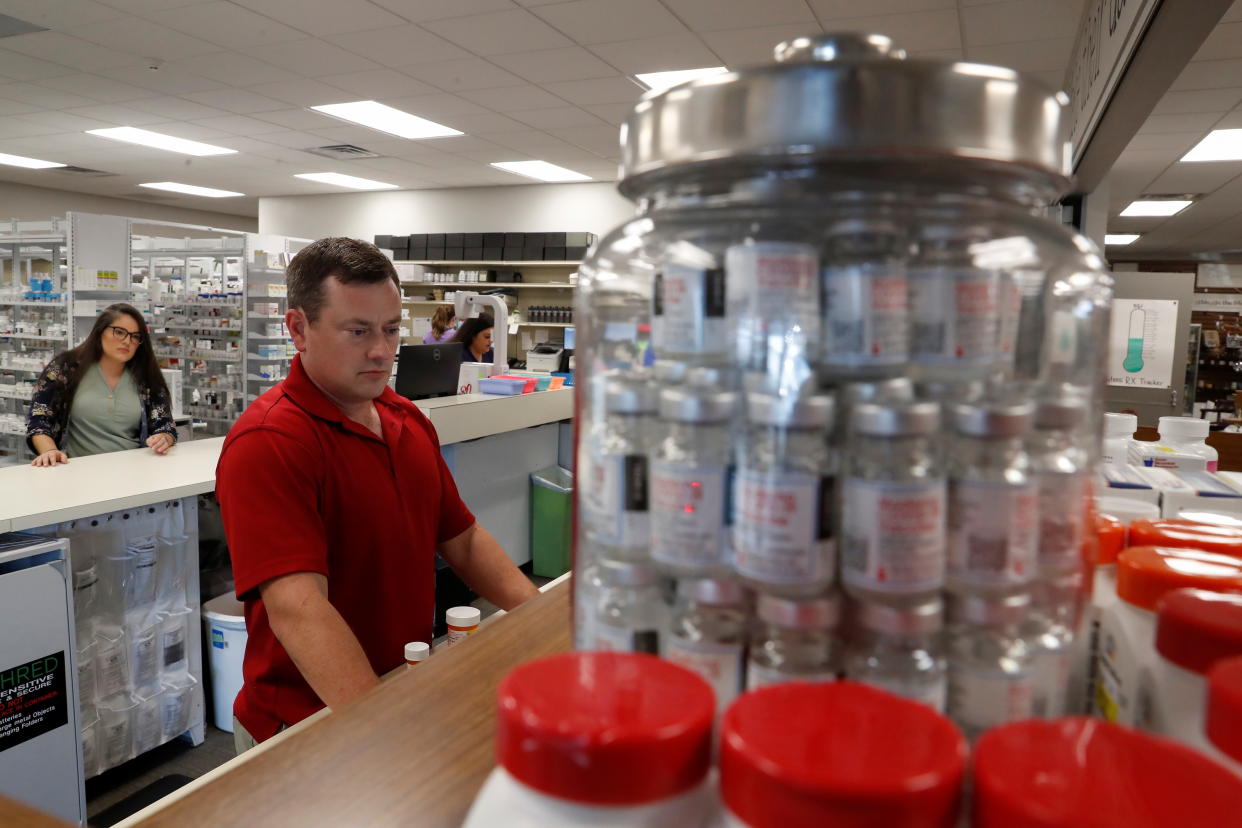Mark Cuban: 'No one should have to choose between food, rent, or medicine'
The recently passed Inflation Reduction Act may finally start to rein in prescription drug costs.
Billionaire Mark Cuban took action long before this by investing in Cost Plus Drugs, a company created by Alexander Oshmyansky. The online pharmacy offers prescription drugs directly to consumers at significantly marked-down prices.
“Our mission is to be the fully transparent, low-cost provider of medications for all patients,” Cuban told Yahoo Finance over email. “No one should have to choose between food, rent, or medicine.”
According to Cost Plus Drugs’ website, the online pharmacy “fills and delivers prescriptions at our cost + a fixed 15% margin.” The prescriptions are then fulfilled by accredited facilities and shipped to patients nationwide, with the aim of a “seamless consumer experience.”
“By delivering transparency and low costs for drugs, we hope to make health care a little more understandable for everyone,” Cuban said.
How it works
Consumers can access Cost Plus Drugs directly on its website or through employer-sponsored programs.
To use the online pharmacy, consumers simply search for their medication on the Cost Plus Drugs website, ask their doctor to send the prescription to a pharmacy partner, and receive their medications by mail.
There are currently more than 150 of the most in-demand generic medications available, and the online pharmacy is aiming to increase to more than 1,500 generic medications within the next six months. However, it has yet to break into the brand-name market of drugs still under patent.
The company is scheduled to open a 22,000 square-foot fill-finish facility in Dallas in the fourth quarter of 2022 that is designed to “respond rapidly to drug shortages and price hikes.”
Additionally, according to the website, Cost Plus Drugs is “also working with trade name manufacturers to add both single source brands and specialty biologics to our pharmacy.”
The drug with the biggest savings through Cost Plus Drugs is Imatinib, a generic for Gleevec that’s used to treat leukemia. One tablet typically costs $2,502.50 but can be purchased through Cost Plus Drugs for just $14.40 (a difference of $2,488.10).
Other drugs with major savings include Omeprazole-Sodium Bicarbonate (a Proton-pump inhibitor), Dimethyl Fumarate (used to treat multiple sclerosis), Valcyte (an antiviral medication), and Ampyra (a multiple sclerosis drug). Together, these drugs combine for $9,384.67 in savings through Cost Plus Drugs.
Cost Plus Drugs does not currently accept insurance, though Cuban said the company is “working on being able to work with insurers while still maintaining our low pricing.”
‘Numerous bad actors’
There are several organizations that target eliminating medical debt, but few have tried tackling one of the main sources, which is the cost of prescription drugs.
According to NiceRx, health care costs are projected to reach $6.2 trillion by 2028, with prescription drugs accounting for 10% of the spending.
Oshmyansky attributed these rising costs to “bad actors” in the industry.
“There are numerous bad actors in the pharmaceutical supply chain preventing patients from gettindg affordable medicines,” Oshmyansky stated when Cost Plus Drugs officially launched.
Cuban declined to mention any company by name.
The company’s website singles out pharmacy benefit managers (PBMs) because of their role in determining drug prices. PBMs are “third-party companies that act as intermediaries between insurance providers and pharmaceutical manufacturers,” according to the National Association of Insurance Commissioners. They also “create formularies, negotiate rebates (discounts paid by a drug manufacturer to a PBM) with manufacturers, process claims, create pharmacy networks, review drug utilization, and occasionally manage mail-order specialty pharmacies.”
Cost Plus Drugs works by eliminating the middlemen — in this case, pharmacy benefit managers — to negotiate directly with drug manufacturers for the best price possible.
And while the online pharmacy currently doesn’t work with Medicare — a key component affected by the Inflation Reduction Act — Cuban said that he sees an opportunity to do so.
Currently through Medicare, most plans have a coverage gap that temporarily limits how much is covered for prescription drugs. Those in that donut hole are responsible for up to 25% of overall costs.
For those on non-Medicare plans, Cuban said, whether or not there will be significant cost savings through Cost Plus Drugs depends on a patient’s deductible.
“For most people, we will be cheaper than their copay,” he said.
So far, neither the pharmaceutical industry nor the health insurance industry has responded to the company’s business plan. In any case, Cuban is hopeful that his company is the start of more competitive pricing among pharmaceutical drugs.
“Our mission is to be the low-cost provider of medications,” Cuban said. “As of now, we can best do that by selling direct to patients.”
Adriana Belmonte is a reporter and editor covering politics and health care policy for Yahoo Finance. You can follow her on Twitter @adrianambells and reach her at [email protected].
Click here for politics news related to business and money
Read the latest financial and business news from Yahoo Finance
Download the Yahoo Finance app for Apple or Android
Follow Yahoo Finance on Twitter, Facebook, Instagram, Flipboard, LinkedIn, and YouTube
Source: Read Full Article

